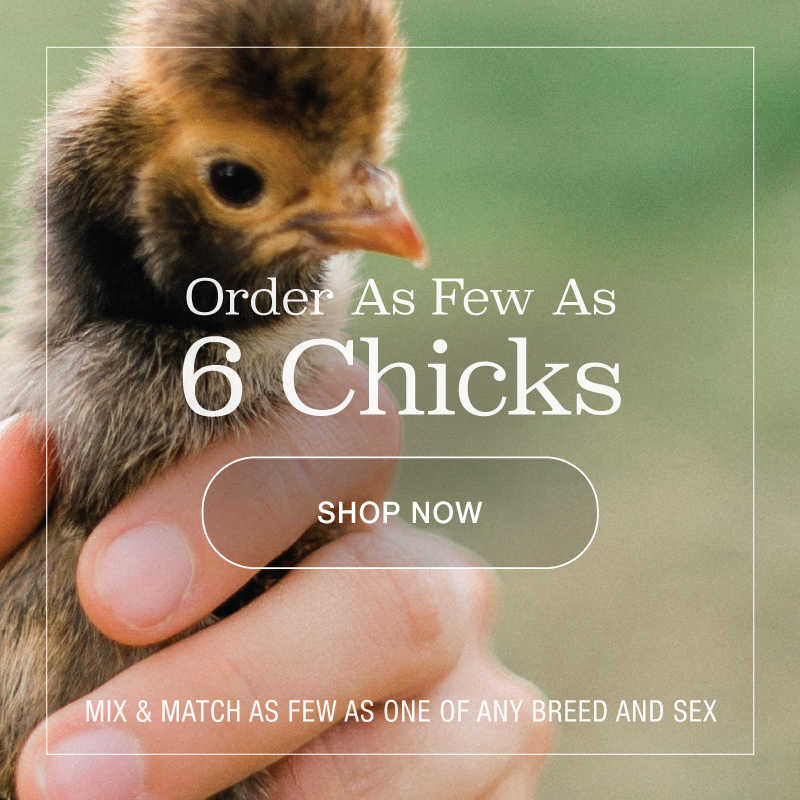[This article is part 1 of a two part series.]
We here at McMurray Hatchery care about the health and well being of all our birds, from our hatching flocks to the newly hatched chicks. To ensure that you receive the healthiest chicks possible, we do a number of things both on the farms and at the hatchery.
All of our parent flocks, from which we get our hatching eggs, are vaccinated at the hatchery (within twelve hours after hatching) for three strains of Marek’s disease, Bursal disease, and Coccidiosis.
On the farm, the birds are vaccinated for Newcastle and Infectious Bronchitis diseases. This is a combination vaccine, sprayed on the birds at four different ages – at two weeks, four weeks, seven weeks and ten or eleven weeks. After the chicks are four weeks up to twelve weeks old, we vaccinate them for Laryngotracheitis. This is administered by putting a drop of the vaccine in one eye of each bird. Between the eighth and eleventh week of age we vaccinate for AE (Avian Encephalomyelitis) and Fowl Pox. Again, this is a combination vaccine, and is applied with a special applicator in the wing web of each bird. These last two procedures are quite labor intensive and take a lot of time, but we feel it necessary for the overall health of the flocks and therefore the health of the baby chicks.
Each of our flock owners also worms all the flocks to help in keeping internal parasites under control.
We are also fortunate to have a good working relationship with the Iowa State University poultry extension veterinarian in case we have any questions or concerns.
Prior to flocks going into egg production, we test, inspect and cull. We test for Pullorum, Typhoid, and Para Typhoid diseases (all different kinds of salmonella), per National Poultry Improvement Plan (NPIP) standards . This involves getting a drop of blood from the wing and mixing it with a stained antigen and observing to see if there is a positive or negative reaction. Our testers are all certified by the United States Department of Agriculture (USDA) Animal and Plant Health Inspection Services (APHIS) National Poultry Improvement Plan (NPIP).



Hi!
I am very impressed by your parent flock testing standards. Does that mean you cull any breeder birds that have salmonella, keeping only those in your egg laying program who do not test positive? And if so, does that mean the eggs and offspring of your healthy parent flocks do not carry salmonella? And the chicks I could purchase would not have salmonella? What’s the percentage of salmonella cases that you do find? Is salmonella curable in a chicken?
I have long wished to have some pet chickens who I know don’t have salmonella and whose eggs I don’t have to worry about bearing the germs…
I’m just a regular person with no special chicken raising knowledge. I had pet chickens as a kid, and they made me very happy. Now, I’m considering getting some more chickens for my little girl. Chickens are just wonderful! Your web site is excellent.
Thank you and kind regards,
Emily.
All of our breeders are tested for Salmonella Pullorum Typhoid. This test will also detect many other strains of salmonella. If a breeder were to test positive, we would immediately cull it from the flock. We have not had a breeder test positive for many years.
The questions you raise deserve an in depth answer. Please watch the blog for an forthcoming article that will give a fuller answer to your questions.